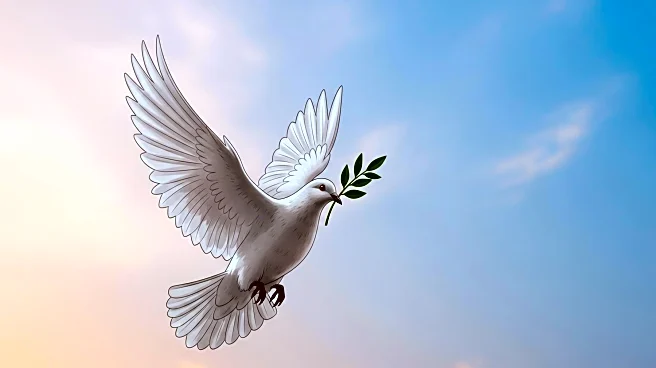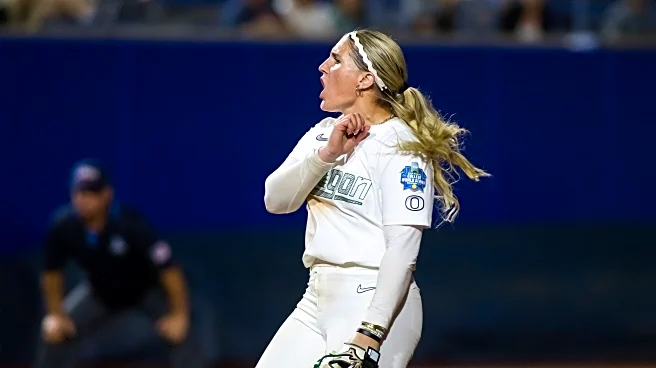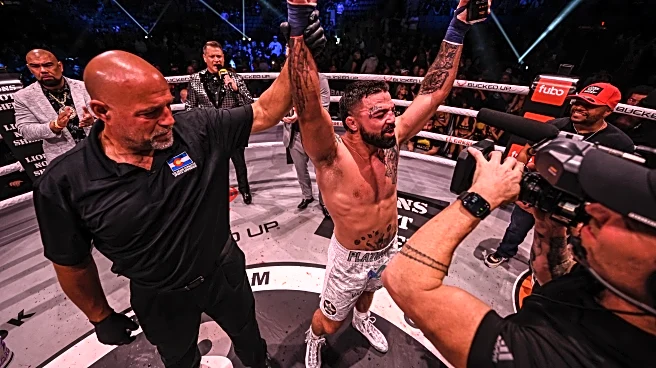What is the story about?
What's Happening?
María Corina Machado, a Venezuelan opposition leader, has been awarded the Nobel Peace Prize for her relentless advocacy for democratic rights in Venezuela. The Norwegian Nobel Committee recognized Machado for her efforts to promote a peaceful transition from dictatorship to democracy, despite facing significant personal risks. Machado, who has been in hiding since August 2024 due to threats from the Maduro government, expressed shock upon receiving the award. Her activism has been pivotal in rallying support for democratic candidates, notably attracting large crowds in Caracas for Edmundo González, despite being barred from participating in the presidential elections won by President Nicolás Maduro.
Why It's Important?
Machado's recognition highlights the ongoing struggle for democracy in Venezuela, a country plagued by political turmoil and authoritarian governance. Her award brings international attention to the challenges faced by opposition leaders in Venezuela and underscores the global support for democratic movements. The Nobel Peace Prize serves as a powerful endorsement of Machado's efforts and may inspire further international pressure on the Maduro regime to implement democratic reforms. This recognition could also embolden other activists in similar situations, reinforcing the importance of global solidarity in the fight for democratic rights.
What's Next?
The award may increase international scrutiny on Venezuela's political situation, potentially leading to heightened diplomatic efforts to support democratic transitions. Machado's recognition could galvanize further support from international organizations and governments advocating for human rights and democracy. The Maduro government may face increased pressure to address human rights violations and engage in dialogue with opposition leaders. Machado's future actions, bolstered by the Nobel Peace Prize, could play a significant role in shaping Venezuela's political landscape.
Beyond the Headlines
Machado's award raises questions about the role of international recognition in influencing domestic politics. It highlights the ethical considerations of awarding individuals who face significant personal risks for their activism. The prize may also prompt discussions on the effectiveness of international awards in promoting democratic change and the responsibilities of global institutions in supporting activists facing persecution.
















